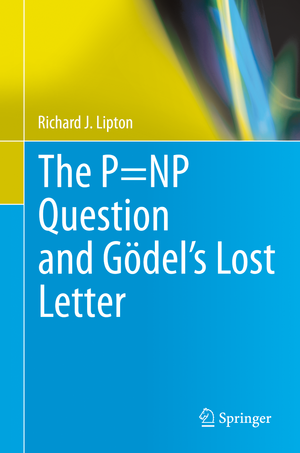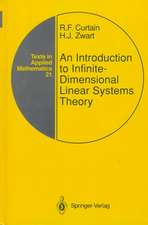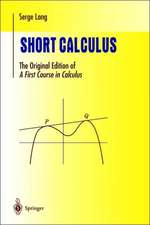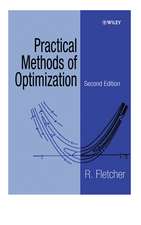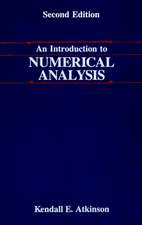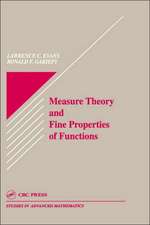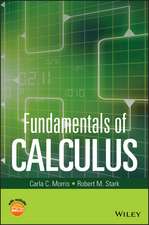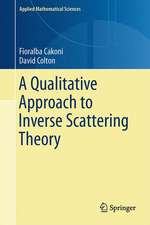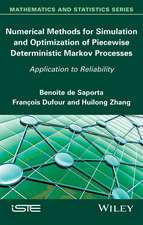The P=NP Question and Gödel’s Lost Letter
Autor Richard J. Liptonen Limba Engleză Hardback – sep 2010
| Toate formatele și edițiile | Preț | Express |
|---|---|---|
| Paperback (1) | 643.50 lei 6-8 săpt. | |
| Springer Us – 20 oct 2014 | 643.50 lei 6-8 săpt. | |
| Hardback (1) | 649.75 lei 6-8 săpt. | |
| Springer Us – sep 2010 | 649.75 lei 6-8 săpt. |
Preț: 649.75 lei
Preț vechi: 812.19 lei
-20% Nou
Puncte Express: 975
Preț estimativ în valută:
124.33€ • 132.95$ • 103.66£
124.33€ • 132.95$ • 103.66£
Carte tipărită la comandă
Livrare economică 18 aprilie-02 mai
Preluare comenzi: 021 569.72.76
Specificații
ISBN-13: 9781441971548
ISBN-10: 1441971548
Pagini: 256
Ilustrații: XIII, 239 p.
Dimensiuni: 155 x 235 x 27 mm
Greutate: 0.54 kg
Ediția:2010
Editura: Springer Us
Colecția Springer
Locul publicării:New York, NY, United States
ISBN-10: 1441971548
Pagini: 256
Ilustrații: XIII, 239 p.
Dimensiuni: 155 x 235 x 27 mm
Greutate: 0.54 kg
Ediția:2010
Editura: Springer Us
Colecția Springer
Locul publicării:New York, NY, United States
Public țintă
Professional/practitionerCuprins
A Prologue.- A Walk In the Snow.- On the P=NP Question.- Algorithms: Tiny Yet Powerful.- Is P=NP Well Posed?.- What Would You Bet?.- What Happens When P=NP Is Resolved?.- NP Too Big or P Too Small?.- How To Solve P=NP?.- Why Believe P Not Equal To NP?.- A Nightmare About SAT.- Bait and Switch.- Who’s Afraid of Natural Proofs?.- An Approach To P=NP.- Is SAT Easy?.- SAT is Not Too Easy.- Ramsey’s Theorem and NP.- Can They Do That?.- Rabin Flips a Coin.- A Proof We All Missed.- Barrington Gets Simple.- Exponential Algorithms.- An EXPSPACE Lower Bound.- Randomness has Unbounded Power.- Counting Cycles and Logspace.- Ron Graham Gives a Talk.- An Approximate Counting Method.- Easy and Hard Sums.- How To Avoid O-Abuse.- How Good is The Worst Case Model?.- Savitch’s Theorem.- Adaptive Sampling and Timed Adversaries.- On The Intersection of Finite Automata.- Where are the Movies?.- On Integer Factoring.- Factoring and Factorials.- BDD’s.- Factoring and Fermat.- On Mathematics.- A Curious Algorithm.- Edit Distance.- Protocols.- Erd?s and the Quantum Method.- Amplifiers.- Amplifying on the PCR Amplifier.- Mathematical Embarrassments.- Mathematical Diseases.- Mathematical Surprises.- Erratum.
Recenzii
“This book is a thoroughly enjoyable read because ofthe great balance between anecdotes, presentations of ‘nice’ problems andalgorithms and their solutions and proofs, ‘hard mathematics,’ and musings onhow to approach mathematical problems. After having read the book, most readerswith a background in complexity theory will most likely be unable to resistimmediately working on at least one of the many open problems presented in thebook.” (Till Tantau, Mathematical Reviews, October, 2015)
“This book … collects and edits the highlights from Lipton’s ongoing blog, rounded out by cross-references and a useful index and bibliography. … the book offers a different experience and a framed portrait of the state of the art. … Summing Up: Recommended. All levels/libraries.” (D. V. Feldman, Choice, Vol. 48 (9), May, 2011)
“The P=NP question is certainly one of the most important problems in mathematics and computer science (CS). What makes this book unique and delightful is that it gives proper weight to the question rather than the technicalities. Each chapter is based on one of Lipton’s blog posts, and readers can jump from chapter to chapter to find his beautifully written thoughts and insights. … In fact, anyone who is highly motivated by this interesting subject that relates science with reality should read it.” (Hector Zenil, ACM Computing Reviews, March, 2011)
“This book collects some entries of the author’s blog on Gödel’s lost letter and P = NP … . It is an enjoyable and lively introduction to some impressive achievements in the field of complexity theory.” (Thierry Coquand, Zentralblatt MATH, Vol. 1215, 2011)
“This book … collects and edits the highlights from Lipton’s ongoing blog, rounded out by cross-references and a useful index and bibliography. … the book offers a different experience and a framed portrait of the state of the art. … Summing Up: Recommended. All levels/libraries.” (D. V. Feldman, Choice, Vol. 48 (9), May, 2011)
“The P=NP question is certainly one of the most important problems in mathematics and computer science (CS). What makes this book unique and delightful is that it gives proper weight to the question rather than the technicalities. Each chapter is based on one of Lipton’s blog posts, and readers can jump from chapter to chapter to find his beautifully written thoughts and insights. … In fact, anyone who is highly motivated by this interesting subject that relates science with reality should read it.” (Hector Zenil, ACM Computing Reviews, March, 2011)
“This book collects some entries of the author’s blog on Gödel’s lost letter and P = NP … . It is an enjoyable and lively introduction to some impressive achievements in the field of complexity theory.” (Thierry Coquand, Zentralblatt MATH, Vol. 1215, 2011)
Notă biografică
Richard Lipton is the Storey Professor of Computer Science at Georgia Institute of Technology. Previously he held faculty positions at Yale University, the University of California at Berkeley, and Princeton University. His research is focused primarily, but not exclusively, on theory of computation. He has made seminal contributions to many areas of computing from software engineering and program testing, to computer security and cryptography, to DNA and molecular computation, and to other areas of computer science. He is a member of The National Academy of Engineering, an ACM Fellow, and a Guggenheim fellow.
Textul de pe ultima copertă
The P=NP question is one of the great problems of science, which has intrigued computer scientists and mathematicians for decades. Despite the abundant research in theoretical computer science regarding the P=NP question, it has not been solved.
The P=NP Question and Gödel’s Lost Letter covers historical developments (including the Gödel’s Lost letter), the importance of P=NP and the future of P=NP. This guide is also based on a new blog by the author, located at http://rjlipton.wordpress.com. Jin-Yi Cai, a professor in computer science at the University of Wisconsin remarks 'I think it is the single most interesting web blog I have seen on related topics. He has a great insight and wit and beautiful way to see things and explain them.' Richard DeMillo, a professor in computer science at Georgia Tech remarks, 'This is a much needed treatment of great open problem computing.'
The P=NP Question and Gödel’s Lost Letter is designed for advanced level studentsand researchers in computer science, and mathematics as a secondary text and reference book. Computer programmers, software developers and IT professionals working in the related industry of computer science theory, will also find this guide a valuable asset.
The P=NP Question and Gödel’s Lost Letter covers historical developments (including the Gödel’s Lost letter), the importance of P=NP and the future of P=NP. This guide is also based on a new blog by the author, located at http://rjlipton.wordpress.com. Jin-Yi Cai, a professor in computer science at the University of Wisconsin remarks 'I think it is the single most interesting web blog I have seen on related topics. He has a great insight and wit and beautiful way to see things and explain them.' Richard DeMillo, a professor in computer science at Georgia Tech remarks, 'This is a much needed treatment of great open problem computing.'
The P=NP Question and Gödel’s Lost Letter is designed for advanced level studentsand researchers in computer science, and mathematics as a secondary text and reference book. Computer programmers, software developers and IT professionals working in the related industry of computer science theory, will also find this guide a valuable asset.
Caracteristici
A cutting edge discussion of the "The P=NP Question" This is a much needed treatment of great open problem computing," states Richard Demillo, Professor, Georgia Institute of Technology Includes supplementary material: sn.pub/extras
